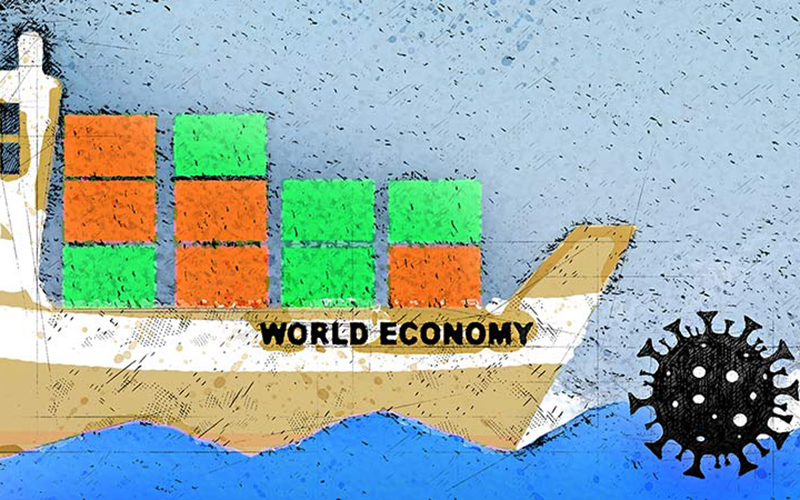Global supply chain in the aftermath of the pandemic
The coronavirus pandemic had bluntly revealed the vulnerability and fragility of the existing global supply chain, especially the overreliance on China.
Almost five months after breaking out in China's Wuhan, the coronavirus pandemic is still keeping the world in suspense. But more and more countries have been slowly going into the so-called "new or novel normalcy". It is obvious that all world major economies have been so hard hit by the pandemic that they all lose weight and importance, hard and soft power. All economies in the world need time to recover from the pandemic. Because they must do it, they all will adjust their policies on trade, investment and international cooperation with their partners. A matter of their profound concerns relates to the existing global supply chain.
| The world economy struggles with the disruption of the global supply chain |
The coronavirus pandemic had bluntly revealed the vulnerability and fragility of the existing global supply chain, especially the overreliance on China. Japan, India, and the United States are among those who have not only thought about moving their supply chains outside China, but have already presented financial programs to encourage their companies to relocate their productions and investments to their native territories or elsewhere. The global supply chain will surely change in a not little extent in the aftermath of the pandemic. But how?
In the pandemic times, every economy realizes how dangerous and harmful it has been and is to be when relying on a global supply chain in which China is the central player. Not a simple war or any armed conflict, not world power politics or bilateral strategic competition but only a single pandemic could immediately disrupt this global supply chain, also because of the pandemic and not because of one's unsociable relationships with China.
Necessary lessons must be drawn from this situation. Sustainable as much as possible will be the global and national supply chains in the future and for the future. Because of the fact that China couldn't be quickly and fully replaced any time soon, economies in the world have to combine the stabilization and consolidation of the supply chains inside China with the diversification suppliers and with the creation of globally broad network of supply sources. The orientation is certainly less interdependent and more autonomous in their supply and value creation chains. In this way, the globalization and integration couldn't avoid to be negatively, to the same extent, affected.










